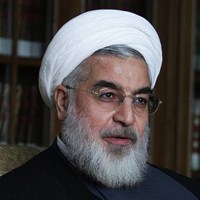The interim nuclear agreement signed by the U.S.-led international coalition known as the P5+1 and Iran appears to be causing a geopolitical earthquake among the members of the Gulf Cooperation Council (GCC). On one side are GCC states that see the potential for resolving decades-long disputes involving maritime issues, boundaries and trade. On the other are those that do not trust Iran and eye Tehran's new stature as a result of the interim agreement with alarm.
The possibilities for diplomatic breakthroughs are now greater than ever, however, as Tehran clearly wants to "cool" its testy relationships with the GCC states. Despite the recent show of unity at the GCC summit in Kuwait concerning unity of defense and police forces, the GCC seems to be undergoing a major shift in mission objectives that highlights key differences among member states.
In Kuwait, Bahrain and Saudi Arabia, reactions to the P5+1 deal range from apprehension to outright panic. The three GCC states usually act in tandem, and their responses to the interim agreement have been uniformly worried. Kuwait and Bahrain are apprehensive of the potential for Iranian President Hassan Rouhani's peace diplomacy to put their own foreign and domestic policies to the test. Kuwait also has security concerns, specifically regarding the degree to which Tehran will seek to dominate overall maritime security in the northern Persian Gulf. For its part, Manama will be keeping a wary eye on how much Tehran seeks to influence Bahrain’s Shiite majority in and around the capital city during the mid-December anniversary of the 2002 constitution, which was aimed at bridging the sectarian divide on the archipelago but never implemented by King Hamad bin Isa Al Khalifa.

